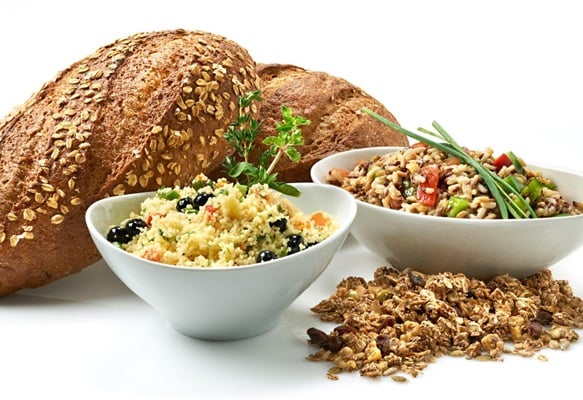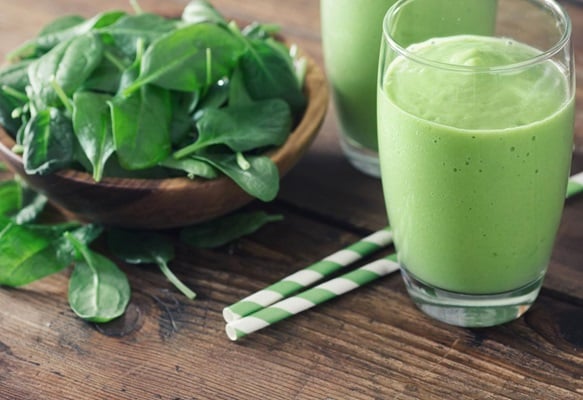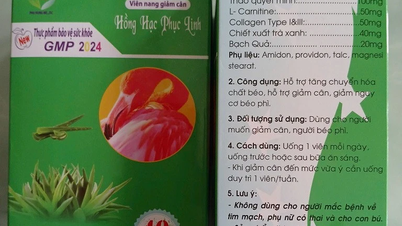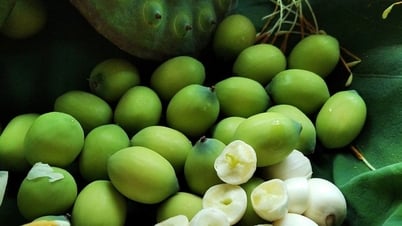SKĐS - Consuming good food will help with healthy digestion and prevent disease. Here are five gut-friendly foods to add to your daily diet…
1. Whole grains improve digestion
All whole grains contain three parts: the bran, the germ, and the endosperm. Each part contains nutrients that are beneficial for digestion.
- The bran is a fiber-rich outer layer that provides B vitamins, iron, copper, zinc, magnesium, antioxidants, and phytochemicals (natural chemical compounds in plants that help prevent disease). The bran and fiber slow the breakdown of starch into glucose, thereby maintaining stable blood sugar levels. Fiber helps lower cholesterol and moves waste through the digestive tract, helping to prevent the formation of small blood clots that can cause heart attacks or strokes.
- The germ is the core of the seed where growth takes place, rich in healthy fats, vitamin E, B vitamins, phytochemicals and antioxidants.
- The endosperm is the inner layer that contains carbohydrates, proteins, and small amounts of some B vitamins and minerals.

Whole grain foods provide many nutrients that are beneficial for the digestive system.
Most whole grains such as brown rice, corn, popcorn, oats... are good sources of fiber, helping to maintain a healthy digestive system, prevent constipation, keep stools soft and full, prevent diverticulosis, Crohn's disease, reduce inflammation, can reduce the risk of rectal cancer, help you feel full longer, thereby reducing obesity and overweight.
2. Green leafy vegetables help relax the digestive system
Green leafy vegetables such as watercress, bok choy, broccoli, spinach, kale... are rich in magnesium, potassium, iron, calcium, vitamins A, C, K and B vitamins. Of which, magnesium is especially important to keep the muscles throughout the digestive system relaxed, promoting more frequent bowel movements.
B vitamins are important for helping convert food into energy, one of the main basic functions of the digestive system. In addition, green leafy vegetables contain chlorophyll, which helps detoxify and reduce inflammation, helping the digestive system function effectively.
Not only that, green leafy vegetables also contain a specific type of sugar that helps promote the growth of healthy gut bacteria. Therefore, consuming lots of fiber and green leafy vegetables will create conditions for a healthy gut microbiome.

Green leafy vegetables help the digestive system work more efficiently.
3. Lean protein controls appetite...
According to Dr. Nguyen Trong Hung, National Institute of Nutrition, protein plays an important role in maintaining life and improving health. For the digestive system, consuming protein-rich foods such as chicken, fish, beans, eggs, milk... has the effect of promoting a feeling of fullness, significantly reducing bloating, flatulence, controlling appetite and promoting healthy weight management.
In addition, protein also supports the recovery and development of digestive tissue; strengthens digestive tract cells, forming a barrier that prevents harmful substances from entering the blood and causing inflammation, while reducing the risk of digestive disorders, promoting overall intestinal health; providing essential amino acids and reducing the risk of leaky gut syndrome.
Although protein is important, people with irritable bowel syndrome or sensitive bowels should eat only lean proteins and avoid foods high in fat, including fried foods.
4. Low-sugar (low-fructose) fruits reduce fructose malabsorption
Fructose intolerance or fructose malabsorption is a digestive disorder that affects the body's ability to absorb and process fructose. Fructose is a sugar found in many fruits and some vegetables. People with fructose intolerance may experience a variety of symptoms, with varying degrees of severity and frequency, such as bloating, abdominal pain, diarrhea, and nausea.
These symptoms often appear soon after consuming foods or drinks high in fructose. This is because undigested fructose in the intestines leads to fermentation by intestinal bacteria.
Therefore, to maintain intestinal health, you should consume low-fructose fruits such as berries and citrus fruits, such as oranges, grapefruits... and limit high-fructose fruits such as apples, pears, mangoes...
5. Avocado contains a lot of fiber to improve digestion.
Avocados are high in fiber and essential nutrients, such as potassium, which help promote healthy digestive function. They are also a low-fructose food, so they are less likely to cause bloating.
In addition, avocados are rich in monounsaturated fats that increase beneficial bacteria, rich in fiber to prevent constipation, rich in potassium to support muscle contractions, including intestinal motility (which breaks down food, moves food from the stomach to the digestive tract for absorption and removes waste from the body).
In addition, avocados are rich in vitamin C, which stimulates collagen production, helping to maintain the strength and integrity of the intestinal barrier. Vitamin C is also a powerful antioxidant that helps reduce intestinal inflammation and improve bacterial diversity and function.
Not only that, avocados also contain many of the most powerful antioxidants in nature such as vitamin E, carotenoids (such as lutein, beta-carotene) and phenolic compounds (such as gallic acid). These substances can promote the growth of 'beneficial bacteria' in the gut, protect the gut from oxidative stress, support the function of beneficial bacteria, keep inflammation low to keep the intestinal barrier intact.
Source: https://giadinh.suckhoedoisong.vn/5-loai-thuc-pham-cai-thien-tieu-hoa-172250330121743809.htm































































































Comment (0)